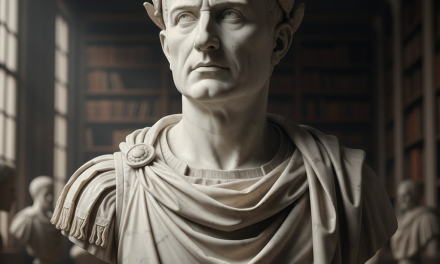by Dr. Tomasz Herzog UTIMES Contributor
Freedom is within our grasp.
Pesach or Passover, one of the major Jewish holidays, fascinates, inspires, and instructs me about the world and myself. Some may wonder why this is so. I don’t have just one answer; those I do have are equally important to me. Before I explain, I emphasize that mine is not and shouldn’t be considered a conventional theological exegesis. I’m not a theologian.
When I think of Pesach, I do it through the lens of who I am and my life experiences. I’m a Jew. I’m a Polish Jew living in America. Therefore, first and foremost, Pesach, to me, is the festival that commemorates the Exodus of the children of Israel from Egypt, the foundation story of Jewish peoplehood. It is the first significant festival instituted in the Torah that not only celebrates national liberation but dramatizes the critical belief, recurrent throughout the Bible, that God hears the cries of the oppressed.
I look forward to reading the Haggadah and a Seder every year. The Passover Seder is full of unique and memorable rituals and traditions. However, the Maggid is the heart of the Seder. The Maggid contains various biblical and rabbinical texts that recount and expound upon the Exodus from Egypt, the meaning of Passover, the value of freedom, the gift of divine providence, and the importance of Jewish tradition. It isn’t just a celebration of the past long gone or a commemoration of the deeds and legacy of our forefathers. As Judaism teaches, that story didn’t end; it continues. As a Jew, I’m part of it too.
Maybe more than usual during Pesach, I recognize the importance of l’dor v’dor, Hebrew for “generation to generation.” The Torah and Jewish sages have taught for millennia that all family members, as the agents of socialization, play an essential role in shaping who our children will become and what the future of Yiddishkeit (Jewish way of life) will look like. They model character and values for their children and families. Therefore, I regard it as my obligation and duty as a Jewish father and a Jewish community member.
But it isn’t just Jews to whom the message of Pesach appeals and who find it timely and relevant to our world. Having lived for most of my life in a predominantly non-Jewish environment, it seems to me (and I’ve heard about it a great deal during numerous conversations conducted with many gentile friends) that what makes Pesach significant and just as inspiring for many non-Jews is its universal, humanistic message. So many of us, Jews and non-Jews alike, have had our Exodus, escaping from Egypt of enslavement and trying to reach the Promised Lands. It makes Pesach such a profoundly human experience that anyone can relate to.
Born and raised in Poland, I lived the first 22 years of my life under Communism and witnessed first-hand its fall in 1989, also known as the Fall of the People. I lived through the period of high hopes and the bitter setbacks and disappointments of the transition to democracy in Poland and other former Soviet satellite states. It was the disintegration of the Soviet Union. As a Jewish Polish-American, over the last few years, I’ve been increasingly troubled by the rising tide of the populist, anti-democratic, authoritarian, and xenophobic (not only anti-Semitic) tendencies both in the US, Poland, and around the world.
Pesach tells the story of slavery and liberation, a complicated journey to freedom. Read in 2021, it may resonate with many contemporary men and women around the world. As in ancient Egypt, modern slavery takes various forms—for example, human trafficking, forced labor, slavery of children, or forced and early marriage. The severe exploitation of other people is their common denominator. The latest figures indicated that
forty million individuals worldwide remain in modern slavery, as per the most significant international human rights organizations.
Modern slavery is all around us but often just out of sight. There are many women, men, and even children entrapped through making our clothes in sweatshops, serving our food, picking our crops, working in factories, or working in houses as cooks, cleaners, or nannies. From the outside, it can look like a normal job, like a regular life. It is not.
Individuals face the threat of deportation, the confiscation of their passports, the imposition of unavoidable debt, or the use of violence or intimidation. The reason why numerous individuals have fallen into this oppressive trap is that they were attempting to enhance their lives, support their families, and escape poverty or insecurity. Presently, they are incapable of departing. “Let my people go.”
Pesach also teaches us that spiritual enslavement is as dangerous as the lack of physical freedom. There will always be those ready to run away from freedom—trade it for a bowl of lentils or the illusion of a better life.
Liberty is never a given; it necessitates a lifelong commitment to effort and maturity. Unsurprisingly, the Israelites spent forty years in the wilderness before reaching the Promised Land. According to numerous Torah scholars, the Israelites were to abandon the habits of captives during this extended sojourn to develop into individuals who could live with freedom and responsibility. A long journey to freedom required (and still does) a lot of hope and perseverance, and that’s what we need today when, so often, it isn’t easy to remain optimistic.
For me, an immigrant, there is a powerful lesson to take from Pesach, especially nowadays. I see the Passover seder as a unique teaching opportunity that allows us to retell the Exodus story and relive the tale with ritual foods and symbols that reflect the dynamic of moving from slavery to freedom. Pesach is a story that has shaped the Jewish people’s identity, consciousness, and values. During the Seder, we Jews taste the bitterness of our oppression and remember what it feels like to be the stranger—unwelcomed, without rights or protection, subject to oppression, cruelty, and slavery, with no one to come to our aid. The Pesach rituals cultivate empathy for those labeled as “the stranger” and for all who are oppressed. How could I forget about or ignore it when, by the end of 2019, there were 79.5 million individuals forcibly displaced worldwide as a result of persecution, conflict, violence, or human rights violations? The Torah insists: “You shall not oppress the stranger, for you know the feelings of the stranger, having yourselves been strangers in the land of Egypt” (Exodus 23:9). It is a call for me to be an agent of change, to keep building a better world. For all. Tikkun olam.
Let me conclude these brief remarks by highlighting another personally meaningful way of interpreting the Pesach story, and that is as a warning:
The last several years have been quite tumultuous—certainly in the US, especially in the previous four years. Many books, essays, numerous talks, and recorded webinars have addressed and examined the phenomena of populism, fake news, various manifestations of xenophobia, and the very concerning authoritarian tendencies observed in different parts of the globe from many, not only scientific points of view. One may say Nihil novi sub sole. The Pesach story has it all. One of the passages of the Pesach narrative comes to mind here. In Moses’ absence (when he was on Mount Sinai with G-d for 40 days and 40 nights), the Golden Calf incident occurred. There have been many interpretations of what happened. I find one of them particularly appealing to me as it can help us, people living in the third decade of the 21st century, comprehend and respond to the social and political challenges of our times. Some rabbis and other Torah scholars conclude that the Golden Calf scandal (and we have frequently seen a very similar modus operandi in many post-Communist societies, including my native Poland since 1989) is a reminder, and even a warning, that although the Israelites gained freedom from slavery and left Egypt, Egypt remained in them: in their psyche, in their habits of learned helplessness, and an outer-directedness. Although they left behind their oppressors, in fact many Israelites still felt a need for the kind of dictatorial rule they had experienced under Pharaoh. Many generations of both Jews and Gentiles who have followed Moshe Rabbenu (Moses Our Teacher) and his contemporaries have shared the existential dread that many of our forefathers experienced—all of us, including you and me.
“The exodus from Egypt [as taught by Rabbi Nachman of Breslov] occurs in every human being, every era, every year, and every day.” To quote the great South African fighter for democracy and justice, Nelson Mandela: “To be free is not merely to cast off one’s chains but to live in a way that respects and enhances the freedom of others.”



